TIMELINESS IS NEXT TO GODLINESS
The course of publishing timelines never did run smooth. Sorry, Shakes.
I grew up in a “cleanliness is next to godliness house” and if you looked at my desk right now (or let’s be real, my cluttery “design” aesthetic of the whole house), you wouldn’t believe it. If I’m being 💯 right now, a cat is throwing up just beyond my office door. Welcome to our newsletter, mighty readers, may you escape the mash of yellow wet.
If I was going to apply this phrase to publicity, I would tell you, it’s timeliness not cleanliness that is akin to the higher power here. That is to say, time matters in every single way in publishing. Particularly, when you start the publicity cycle. All the little details that lead-up to that starting point, like having a ready-fitted book interior (which becomes a digital galley), or uploading meta-data in time for a distributor’s seasonal catalogs and deadlines, or reaching out to an outside publicist seasons before your own book’s blooming, matter. And they matter on the back end too, trying to organize events so that bookstores will be able to create enough buzz to get folks in the door (especially in cities where you don’t have a built-in audience).
Not only logistically is timeliness key, but the time in which your book lands in the hands of readers (which is often chosen for a publisher’s editorially calendar and with note of the other books coming through the pipeline, but a zeitgiesty landing is beyond the control of publishers and publicists other than aligning holiday months, anniversary dates, and industry and media editorial calendars) can explode your book, and make use of the talking points it explores, into the ether in a way it wouldn’t have landed otherwise. I wrote a little about this explosion in terms of Carmen Maria Machado’s acclaimed story collection, Her Body and Other Parties for the new relaunch of AWP’s The Writer’s Chronicle. You can read the whole thing here.
While the zeitgeist, pop culture, viral phrases and interests, or news cycle might not exactly benefit your book on release, it’s a publicist’s job to find those little ways in. When I was scrolling today, I came across the fine work of Laura Di Giovone at Page One Media, connecting Greg Wrenn’s book Mothership to the bipartisan bill to give veterans access to treatments like MDMA and Psilocybin to treat C-PTSD. Because Laura is a stellar publicist, she put a memoirist on News Nation Now to talk through the urgent legislation from an angle of his memoir project. Of course, she’s been creating that momentum throughout the publicity cycle (Wrenn has done talks and events related to this as part of the book’s release). It’s not everyday a memoirist (that isn’t writing into a specifically hot topic) makes it on a national news network.
Please enjoy this message from my mother via Instagram telling me to get the wonderful Christian J. Collier, a poet, on Anderson Cooper’s new grief podcast. Of course I would love to get Collier on that podcast. According to reviews, Greater Ghost “…. acknowledges widespread Black death, but his poems are eulogies against erasure. In remembering his own with humility and honesty, he offers dignity and justice to the many lost, subtly restoring their presence and humanity and individuality. The work of these poems is integral to the health of our society and country—Collier is a critical American voice." So, come on Cooper, have him on!
But in all seriousness, one of a publicist’s job is dreaming big, trying it all, but also to know the playing field. While my mom reminds me to step my publicity game up, who’s to say it couldn’t happen) my pitch for Cooper would have to be so deliberate, so precise, and so directed. And that, takes time—a surprising amount of it.
You can’t tell me my not supportive with her clapping emojis!
There are so many factors beyond an author’s control at book launch, but one thing that is within control, is the year leading up to your book’s publication—pay attention.
This might feel like a self-centered practice, listening to conversations to see how angles and talking points of your project might fit into those conversations, but that’s kind of how writing feels for me. If I’m deep into the writing of an essay, I see offshoots and in-roads to that essay everywhere, suddenly the entire world connects to what I’m trying to say. It’s a terrible, wonderful spot to be as a braided essayist because you don’t want to turn off the sparkling-everything, but you also can’t throw an entire kitchen sink into an essay and hope that it continues to function (unless you’re Durga Chew-Bose. I remain mystified, and I bow down). But this wash of taking in the world like a whirlpool, everything draining towards your book project, is one that’s worthwhile.
Now, am I saying to send all those little links and “did you see this?” to your publicist? Probably not. There is a narrowing—perhaps a net at the bottom of the pool that filters the ideas, but it’s a plus to have ideas—to have new side roads to pursue.
A good publicist will be honest with you (while being kind!) about what might work and what might not. When I first started, I had a very “I’ll try anything!” mindset, which I still carry with me, but I am also much more familiar with who will look at what, who is interested in what, who can be swayed towards an act of imagination. On all sides, our job is to be convincing, alluring, intriguing!
So, the advice here is to let the universe in a little, maybe it’ll help in answering the same interview question twenty different times in twenty different ways, which you will be doing—I’m manifesting it for you right now.
*
Will you have everything you need in time? Some examples:
Events—outreach at least four months in advance; digital galley—needed at the point of pitching; space in your calendar for interviews, events, collaboration, conversation, spin-off essays (so many of my clients have “publicity residences where they go and do a ton of publicity to do’s on writing residence); a link on your publisher’s website where the book can be bought?; copies for events, trade shows (Frankfurt is this week!), conferences—and if you’re not big five, do you know logistically how those books will get to those places, or at least know the contact of the person to make those things happen?; Is the book in the right systems for ordering? (re: Ingram); Have you given blurbers a fair amount of time to consider the book?; is your press committed to the pub date or will they move it if some unforeseeable (re: the election, re: the horrors in the news)?
And most importantly when will YOU have space and time to do the work behind-the-scenes of releasing a book? The best publicity comes from collaboration between the author, your inside team, and me (+ me then yapping away with Alisha and Zoe about ideas).
I do not love either side of non-collaboration: being treated like an assistant at an author’s whim or getting no response from an author about what’s happening. We’re a team, all of us. (Side note: I get asked a lot by authors if the inside team is going to be offended or frustrated by an outside publicist, and the answer is: not if they’re good at their jobs).
Neither demands or silence are productive ways of working. (If we’re answering six emails from you a day, we are not pitching you book … because we’re answering six emails from you a day).
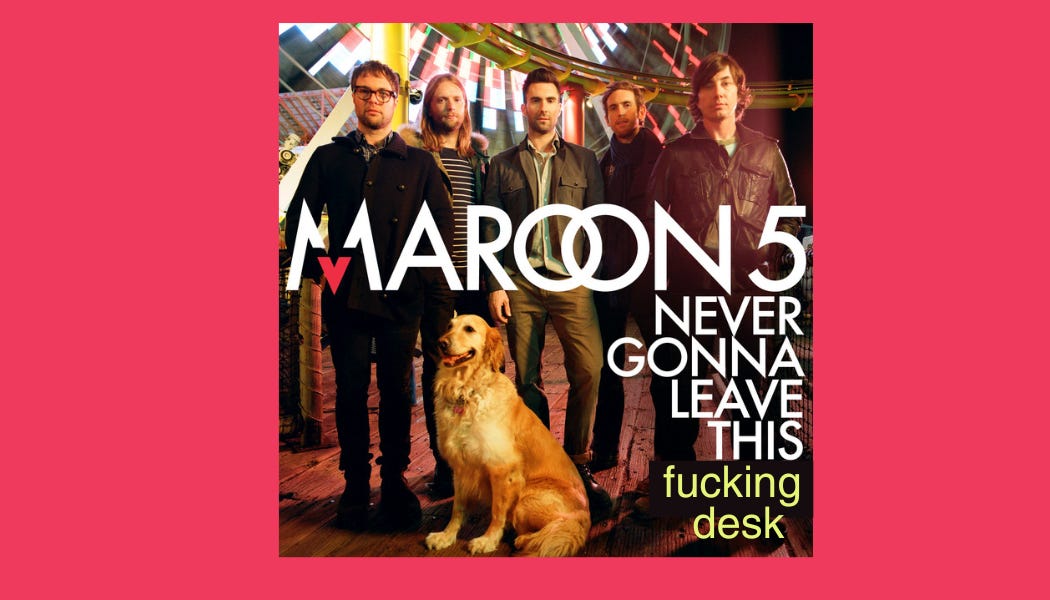
But brainstorming, I love it. I think it’s actually what I’m best at as a publicist, but I live in fear of the title “coach.” Writers who have forthcoming books have to have time for that brainstorm, and if you don’t, it’s best to say that up front to the team you’re working with. If you have a particularly grueling academic schedule, if you are working on another project that’s more important to you, if you simply want publicity to happen in the background of your life, I get it (hi, celebrity memoirists!), but I’ll say that those campaigns look totally different than a coordinated, tag-team effort, than a free exchange of ideas balanced on mutual respect.
If you read two Pine State things this week, I’d love for it to be this Atlantic review of
Riding Like the Wind: The Life of Sanora Babb alongside the adapted excerpt in Salon (of the referenced chapter in the review). I like the tension created when you read them both together, the kind of look at real-time partiality. Dunkle also got a great review in Washington Post, and so much more coming that I will leave for another week.As always, the Pine State calendar of events lives here, and you can buy our books here! You can also see what we’re working on and contact us through our website, Pinestatepublicity.com.
ICYMI: Jesse Lee Kercheval published “The Two Apple Problem” in Literary Hub and was a Short Reads with “JFK,” Sarah LaBrie No One Gets to Fall Apart was on the Debutiful October list, Esinam Bediako’s Blood on the Brain was on Electric Literature’s Indie Book Fall List, Ruben Quesada was interviewed in Out Front Magazine and you can catch him in the latest Believer issue, Iris Jamahl Dunkle’s Riding Like the Wind is a Millions Great Fall Book and reviewed in SF Chronicle and Press Democrat, Chelsey Pippin Mizzi was on the Create Magazine! podcast talking Tarot for Creativity, Christian J. Collier’s Greater Ghost reviewed in Shelf Awareness (and the New York Times!) and was interviewed on WUTC-FM, Alta Journal had three Pine State books on their October list, and so much more on our Twitter & Instagram.





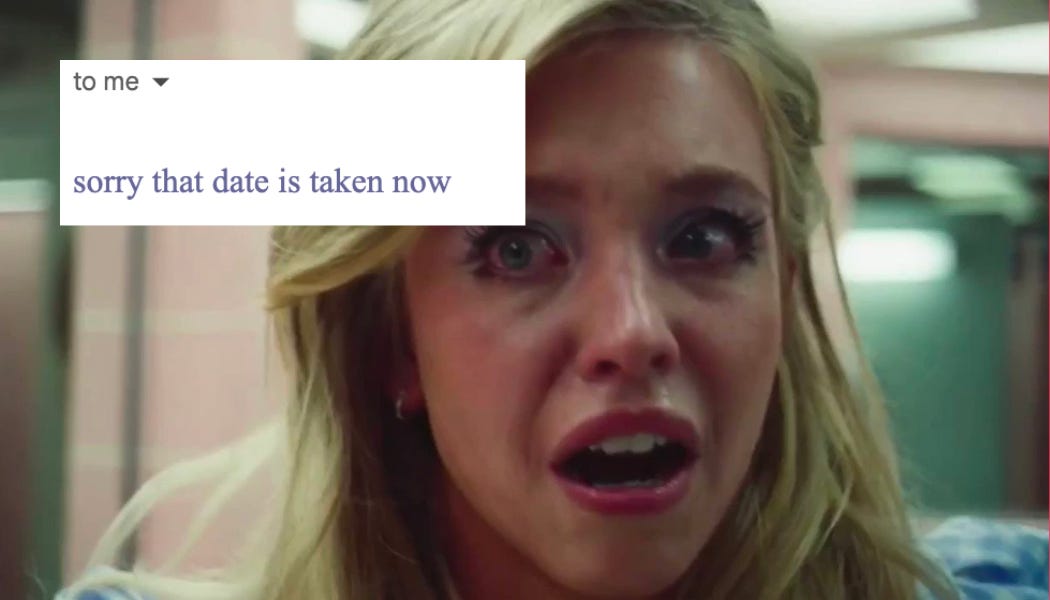
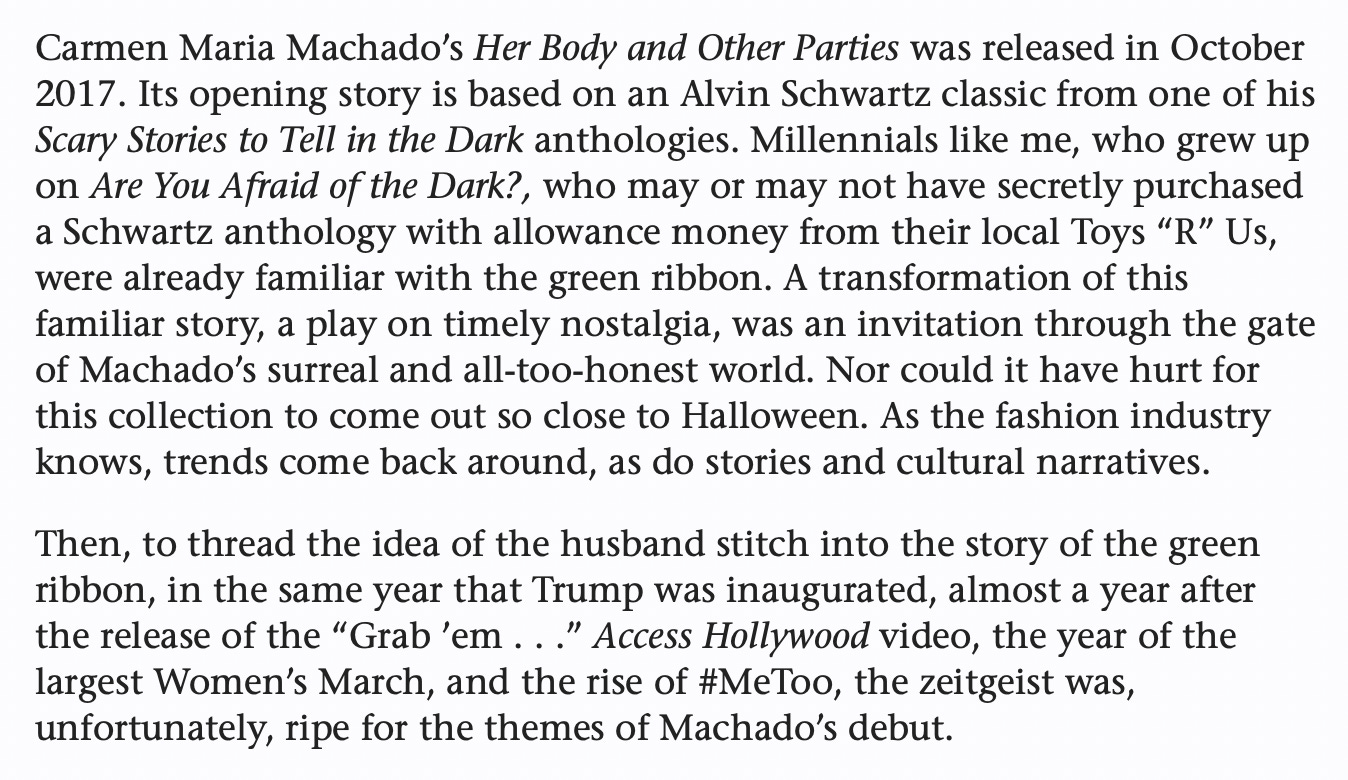
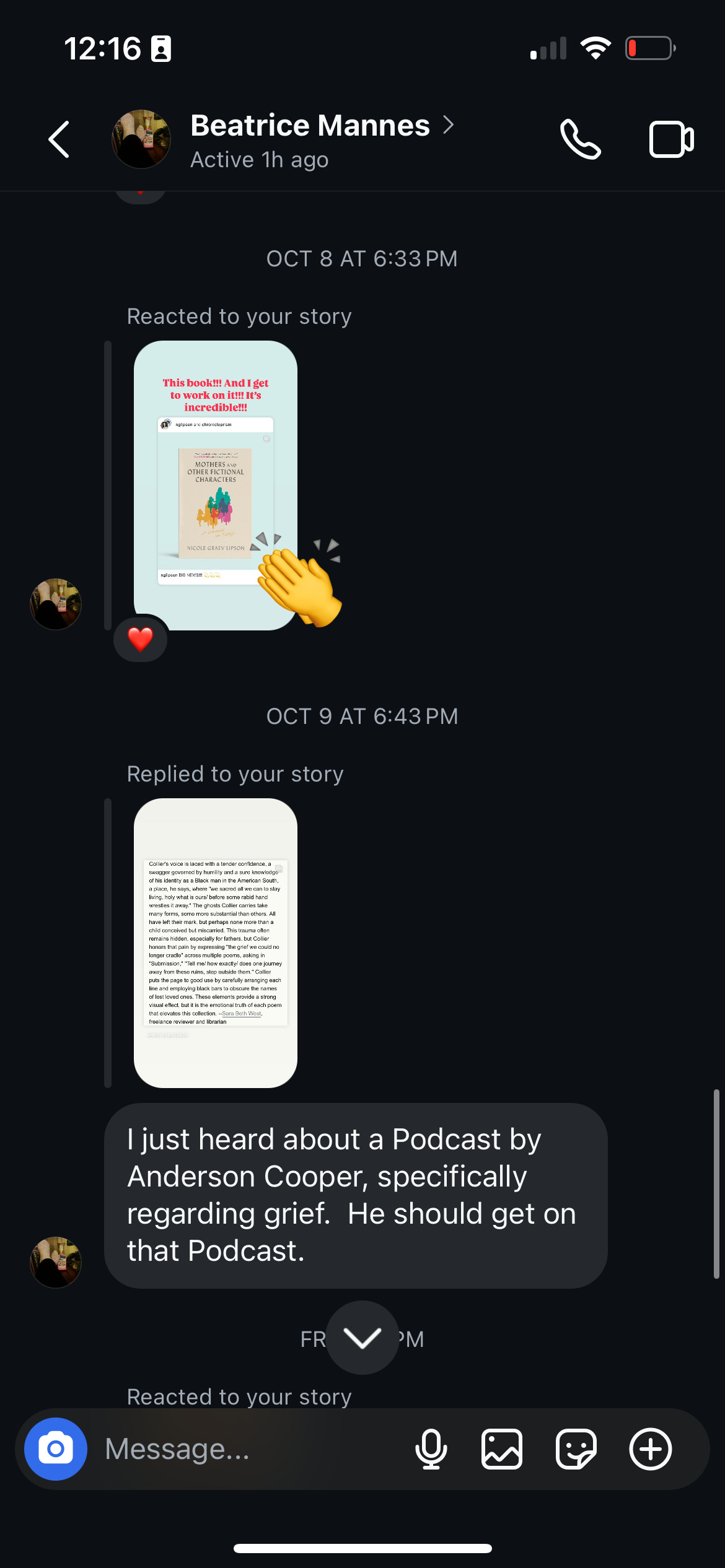
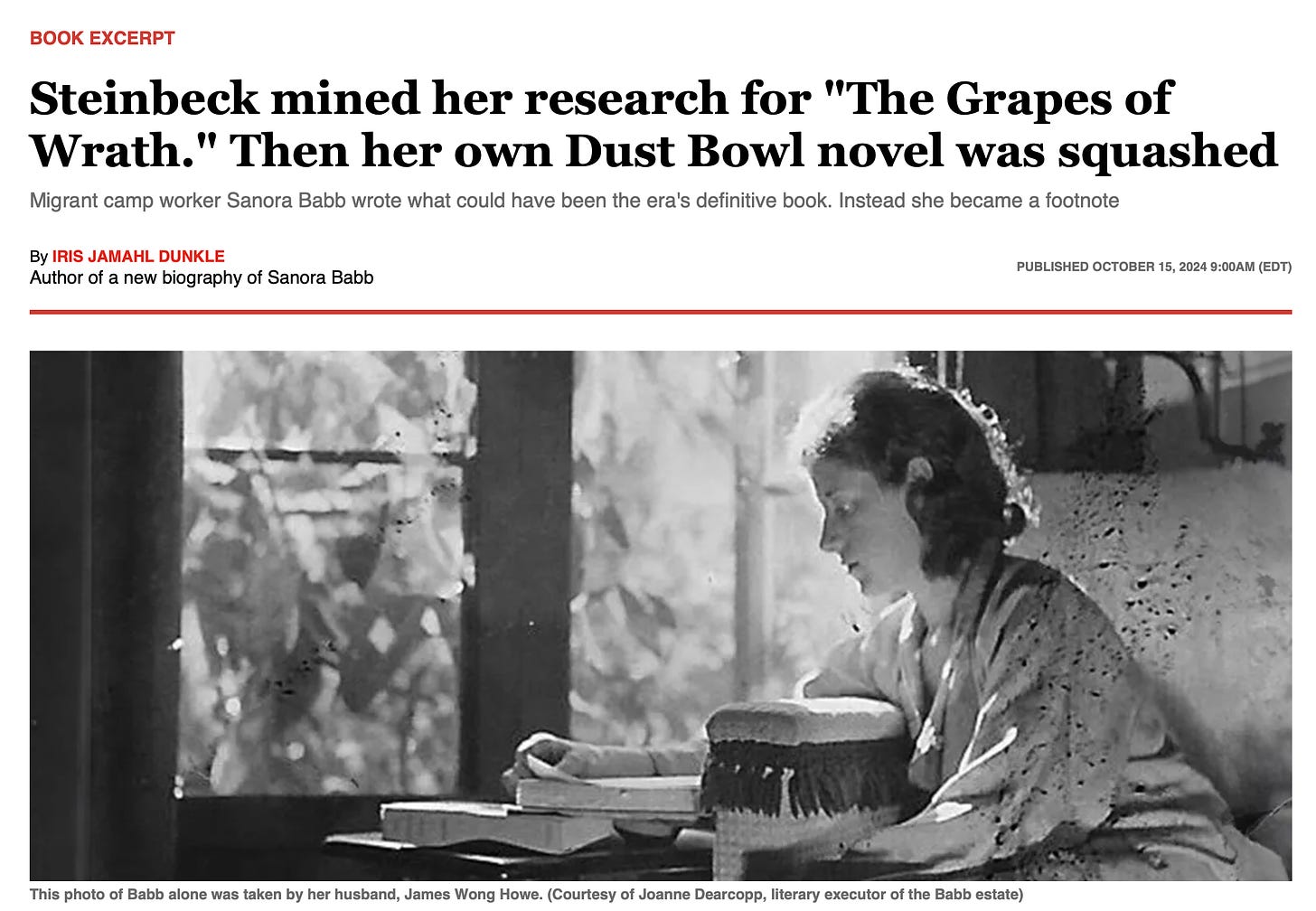
I'm sorry it took me awhile to read this, but as always, I'm so impressed. You always have the pathway mind, looking in all directions to get the result you want. As for Anderson Cooper, I will be crossing my fingers on that one. Come on Anderson, reach out!